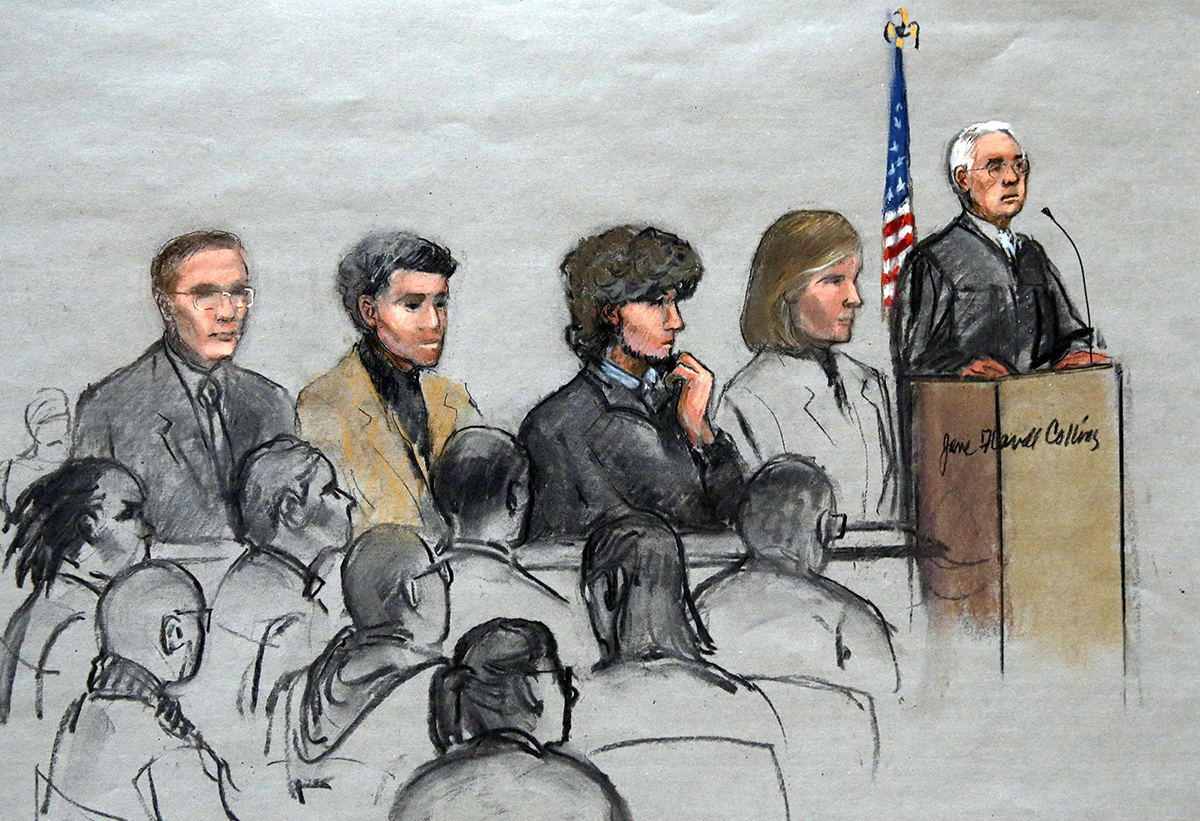Boston Wants a Tsarnaev Death Sentence Less Than the Rest of the Country

Associated Press
When Dzhokhar Tsarnaev’s lawyers moved to have his trial relocated out of the Boston area, they argued that public sentiment was so set against him in Boston that he couldn’t get a fair trial here.
Whether that was true in the guilt phase of the proceedings was made moot when Tsarnaev’s lawyers freely admitted that he committed the acts of which he was accused, leaving the jury with little to do but agree and return guilty verdicts. In the next phase, the sentencing, Tsarnaev faces a jury that said during selection they would be open to considering the death penalty. The jurors are drawn, though, from a geographic region that mostly wants to see him put in prison for life. Interestingly enough, then, Tsarnaev is standing trial in a region far less in favor of executing him than is the country as a whole.
A recent poll conducted by WBUR and MassINC found that 62 percent of Boston voters thought Tsarnaev should be sentenced to life in prison. Just 27 percent wanted the death penalty. There isn’t as much recent nationwide polling on Tsarnaev, but the data we do have shows that the nation as a whole is far more in favor of executing Tsarnaev. A March Washington Post poll found that 70 percent of respondents supported the death penalty for Tsarnaev. Just 27 percent opposed it.
Why the discrepancy? Steve Koczela of The MassINC Polling Group, which conducted the WBUR poll, said in a statement, “To see such a strong preference in Boston for life in prison was not necessarily guaranteed or expected.”
It flies against the idea that those more personally affected by a crime will seek harsher judgement. That said, some who want Tsarnaev to face the worst punishment possible have argued that a long life spent in supermax prison might, in fact, be a fate worse than death for the young Tsarnaev.
But it probably has much to do with our opinions on the death penalty itself, as the New York Times’s Katharine Seelye pointed out. Massachusetts is more liberal than the country as a whole. We’re highly educated, too. Both of those factors correlate with opposition to capital punishment. It has been outlawed here since 1984, and we haven’t executed a prisoner since 1947. Texas, by contrast, executed 10 people last year. When you poll Boston voters, you’re not just polling a community more impacted by the marathon. You’re polling a group much less familiar with capital punishment, and much less supportive of it.
Tsarnaev’s trial under federal law opened up the possibility for a death sentence, so it’s given Massachusetts residents the rare chance to examine how they feel about it in a specific case. It seems that even under the circumstances, our relative antipathy toward capital punishment has held up.


